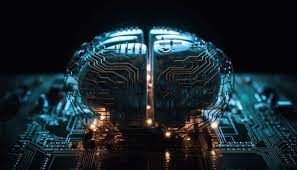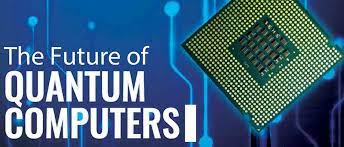In the realm of computing, the advent of quantum computing stands as a paradigm-shifting development. Unlike classical computing, which relies on bits to represent data as either 0s or 1s, quantum computing harnesses the principles of quantum mechanics to process information in quantum bits, or qubits, offering unprecedented computational power. As research and development in this field continue to accelerate, the future of quantum computing holds immense promise, with groundbreaking breakthroughs and transformative applications poised to revolutionize industries and redefine the boundaries of what’s possible.
Understanding Quantum Computing:

At the heart of quantum computing lies the unique properties of quantum mechanics, where particles can exist in multiple states simultaneously, known as superposition, and can be entangled, enabling instantaneous correlation between particles regardless of distance. These principles allow quantum computers to perform complex calculations exponentially faster than classical computers, unlocking solutions to problems previously deemed intractable.
Breakthroughs Driving Progress:

Recent years have witnessed significant breakthroughs in the field of quantum computing, propelled by advances in quantum hardware, software algorithms, and error correction techniques. Notable milestones include the achievement of quantum supremacy, demonstrated by Google’s quantum processor completing a calculation in minutes that would take classical supercomputers thousands of years to solve. Moreover, advancements in quantum error correction and fault-tolerance have paved the way for more reliable and scalable quantum systems, overcoming the inherent fragility of qubits to errors and decoherence.
Applications Across Industries:

The potential applications of quantum computing span a wide array of industries, promising transformative solutions to complex problems in fields such as cryptography, drug discovery, materials science, finance, and optimization. In cryptography, for instance, quantum computers have the capability to break traditional encryption schemes, prompting the development of quantum-resistant cryptographic algorithms to safeguard sensitive data in the age of quantum computing. Similarly, in drug discovery and materials science, quantum computing accelerates molecular simulations and optimization tasks, leading to the discovery of novel compounds and materials with applications in pharmaceuticals, renewable energy, and beyond.
Challenges and Opportunities:

While the future of quantum computing holds immense potential, it is not without its challenges. Scalability, error mitigation, and the need for robust hardware and software ecosystems remain key areas of focus for researchers and industry stakeholders. Moreover, the ethical implications of quantum computing, particularly in areas such as cryptography and artificial intelligence, warrant careful consideration to ensure responsible and equitable deployment of these technologies.
Looking Ahead:

As research and development in quantum computing continue to progress, the future holds boundless opportunities for innovation and discovery. From simulating complex quantum systems to optimizing supply chains and revolutionizing machine learning, quantum computing stands poised to reshape the technological landscape in ways previously unimaginable. By fostering collaboration between academia, industry, and government, and investing in education and infrastructure, we can unlock the full potential of quantum computing and usher in a new era of computational power and innovation.
Conclusion:
The future of quantum computing is one of unparalleled possibility, driven by groundbreaking breakthroughs and transformative applications across industries. As we embark on this journey into the quantum realm, let us embrace the challenges and opportunities that lie ahead, working together to harness the full potential of quantum computing and charting a course towards a brighter, more technologically empowered future.


